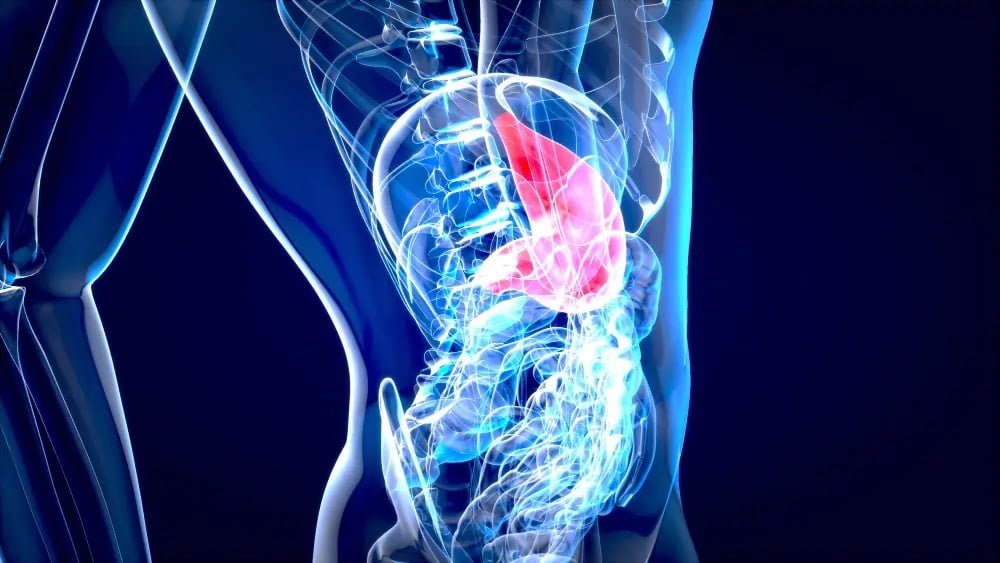Introduction
Have you ever wondered about the conditions known as PCOD Vs PCOS? These two hormonal disorders, affecting women of reproductive age, have a significant impact on fertility and pregnancy. In this comprehensive article, we will delve deeper into PCOD (Polycystic Ovary Disorder) and PCOS (Polycystic Ovary Syndrome). We will explore their causes and symptoms, the effects they have on fertility, and how they can influence pregnancy. Understanding these conditions is crucial to effectively manage them and increase the chances of a successful conception and pregnancy.
PCOD and PCOS: Understanding the Basics

PCOD and PCOS are often used interchangeably; however, they are not the same condition. PCOD, or Polycystic Ovary Disorder, is characterized by the presence of enlarged ovaries containing multiple small cysts. On the other hand, PCOS, or Polycystic Ovary Syndrome, is a more complex condition that involves multiple symptoms, including irregular periods, hormonal imbalances, and metabolic issues. Let’s take a closer look at each condition to understand their impact on fertility and pregnancy.
The Basics of PCOD
Polycystic Ovary Disorder (PCOD) is a condition characterized by the presence of enlarged ovaries containing multiple small cysts. These cysts are actually immature follicles that have not developed into eggs. PCOD is primarily a hormonal disorder, that affects the balance of hormones produced by the ovaries, particularly estrogen and progesterone. This imbalance can lead to irregular or absent periods, as well as other associated symptoms.
Understanding PCOS
Polycystic Ovary Syndrome (PCOS) is a more complex condition that presents a combination of symptoms, including irregular periods, hormonal imbalances, and metabolic issues. PCOS is believed to have genetic and environmental components that contribute to its manifestation. Women with PCOS often have higher levels of androgens, the male hormones, which can disrupt the normal functioning of the ovaries. This disruption leads to the formation of cysts, irregular ovulation, and the potential for fertility-related complications.
Causes and Symptoms of PCOD and PCOS

While the exact causes of PCOD and PCOS are not yet fully understood, researchers have identified several factors that contribute to their development. These factors can differ between the two conditions.
Common Causes of PCOD
PCOD is often associated with high levels of insulin in the body. This condition, known as insulin resistance, can cause the overproduction of androgens in the ovaries – the male hormones that disrupt the normal menstrual cycle and potentially lead to the formation of cysts. Other contributing factors may include genetic predisposition, hormonal imbalances, and elevated levels of inflammation.
Common Causes of PCOS
The exact causes of PCOS are still being studied. However, it is believed to result from a combination of genetic and environmental factors. Women with a family history of PCOS are more likely to develop the condition. Environmental factors like a sedentary lifestyle, poor diet, and exposure to endocrine disruptors may also contribute to PCOS development. Hormonal imbalances and insulin resistance play significant roles in amplifying the symptoms and effects of PCOS.
Symptoms of PCOD
The symptoms of PCOD can vary from woman to woman, but some common signs to look out for include irregular or absent periods, heavy bleeding, acne, weight gain often concentrated around the waist, excessive hair growth (hirsutism), and mood swings. It’s important to note that not all women with PCOD experience the same symptoms, and the severity can vary.
Symptoms of PCOS
Women with PCOS may experience a range of symptoms, which can include irregular periods or no periods at all, heavy bleeding, acne, weight gain, hair loss or thinning of hair, excessive hair growth on the face or body (hirsutism), and mood swings. Insulin resistance and metabolic issues associated with PCOS can also lead to weight gain and difficulty losing weight.
The Impact of PCOD and PCOS on Fertility

One of the primary concerns for women with PCOD or PCOS is the impact these conditions can have on fertility. Both PCOD and PCOS can significantly disrupt the normal hormonal balance required for ovulation and conception.
How PCOD Affects Fertility
PCOD primarily affects fertility due to irregular or absent ovulation. Without regular ovulation, the chances of conceiving naturally decrease. In some cases, the hormonal imbalances caused by PCOD can also result in the overproduction of estrogen and reduced production of progesterone, causing changes to the endometrium (the lining of the uterus) that may hinder successful implantation.
How PCOS Affects Fertility
PCOS plays a complex role in fertility issues. The imbalanced hormone levels and disrupted ovulation cycles in PCOS can make it more difficult to conceive naturally. Additionally, women with PCOS may have difficulty maintaining a regular menstrual cycle, which further reduces the opportunities for successful conception. The formation of cysts on the ovaries can also interfere with the release of mature eggs, reducing the chances of fertilization.
Managing PCOD and PCOS for Improved Fertility
While PCOD and PCOS can pose challenges to fertility, there are various ways to manage these conditions effectively. A comprehensive approach involving lifestyle changes, medication, and medical care can greatly improve the chances of conceiving.
Lifestyle Changes and Healthy Habits for Managing PCOD

Making healthy lifestyle choices is crucial for managing PCOD. Maintaining a healthy weight through regular exercise and a balanced diet can help regulate insulin levels, manage hormonal imbalances, and improve fertility. Specific dietary considerations, such as reducing refined carbohydrates and consuming foods with a low glycemic index, may be beneficial. Stress management techniques, such as mindfulness practices or therapy, can also play a significant role in hormonal balance.
Medications and Treatments for PCOD
In some cases, medication may be prescribed to manage PCOD. Commonly prescribed medications include birth control pills, which help regulate the menstrual cycle, and metformin, which can improve insulin sensitivity. In certain situations, fertility drugs like clomiphene citrate may be recommended to stimulate ovulation.
Lifestyle Changes and Healthy Habits for Managing PCOS

Medications and Treatments for PCOS
Medications and treatments for PCOS aim to address specific symptoms, restore hormonal balance, and improve fertility. Birth control pills are often used to regulate menstrual cycles and manage hormone levels. Anti-androgen medications may be prescribed to reduce the effects of excess male hormones, such as acne or excessive hair growth. For women trying to conceive, ovulation-inducing medications like clomiphene citrate or injectable gonadotropins may be recommended under the supervision of a healthcare professional.
PCOD, PCOS, and Pregnancy

While getting pregnant with PCOD or PCOS may present challenges, it is still possible to achieve a healthy pregnancy. With the right knowledge, guidance, and support, women can increase their chances of conception and successfully manage their condition throughout pregnancy.
Challenges of Getting Pregnant with PCOD/PCOS
The irregular ovulation cycles and hormonal imbalances associated with PCOD and PCOS tend to decrease the chances of natural conception. Without regular ovulation, fertilization becomes more difficult. Additionally, hormonal imbalances and other symptoms can affect the environment of the uterus, making it less receptive to implantation.
Tips for Conceiving with PCOD/PCOS
If you’re trying to conceive with PCOD or PCOS, it’s advisable to seek assistance from a fertility specialist. They can provide guidance, accurate diagnosis, and personalized treatment plans based on your specific situation. Fertility treatments such as ovulation induction, intrauterine insemination (IUI), or in-vitro fertilization (IVF) can help overcome the challenges posed by PCOD or PCOS.
Managing Pregnancy with PCOD/PCOS
Once pregnancy is achieved, managing PCOD or PCOS during pregnancy becomes crucial. Regular prenatal care and close monitoring by healthcare professionals are essential to ensure the well-being of both the mother and the baby. Maintaining a healthy lifestyle, following a well-balanced diet, appropriate exercise, and careful monitoring of hormonal levels can help minimize potential complications. Your healthcare provider will work closely with you to manage any potential risks and make adjustments to your treatment plan as necessary.
Conclusion (PCOD Vs PCOS)
PCOD and PCOS can significantly impact a woman’s fertility and pregnancy journey. However, with proper management and care, it is possible to overcome these challenges. Recognizing the symptoms, seeking early diagnosis, and working closely with healthcare professionals are key steps in effectively managing PCOD or PCOS. By making lifestyle changes, following prescribed medications, and pursuing fertility treatments when necessary, women can increase their chances of conceiving and maintaining a healthy pregnancy. Remember, proactive steps and professional support can make a world of difference when it comes to PCOD and PCOS.
FAQs
1. Can PCOD and PCOS be cured?
Unfortunately, PCOD and PCOS cannot be cured completely. However, they can be effectively managed through lifestyle changes, medications, and proper medical care.
2. Are all women with PCOD or PCOS infertile?
No, not all women with PCOD or PCOS are infertile. However, these conditions can greatly affect fertility and may require additional assistance or treatment to conceive.
3. Are there any natural remedies for managing PCOD and PCOS?
While certain natural remedies may help manage symptoms, it’s important to consult with a healthcare professional for appropriate guidance and treatment. Lifestyle changes, such as a healthy diet and regular exercise, often form the basis of natural management.
4. Can PCOD or PCOS go away after menopause?
PCOD and PCOS are conditions that primarily affect women of reproductive age, and their symptoms often diminish after menopause. However, it’s important to continue managing these conditions to maintain overall health.
5. Are there any specific precautions to take during pregnancy with PCOD or PCOS?
During pregnancy, it’s crucial to closely follow your healthcare provider’s guidance. Regular prenatal care, a healthy lifestyle, and monitoring of hormone levels are essential for managing PCOD or PCOS during pregnancy.




 Afrikaans
Afrikaans Albanian
Albanian Amharic
Amharic Arabic
Arabic Armenian
Armenian Azerbaijani
Azerbaijani Basque
Basque Belarusian
Belarusian Bengali
Bengali Bosnian
Bosnian Bulgarian
Bulgarian Catalan
Catalan Cebuano
Cebuano Chichewa
Chichewa Chinese (Simplified)
Chinese (Simplified) Chinese (Traditional)
Chinese (Traditional) Corsican
Corsican Croatian
Croatian Czech
Czech Danish
Danish Dutch
Dutch English
English Esperanto
Esperanto Estonian
Estonian Filipino
Filipino Finnish
Finnish French
French Frisian
Frisian Galician
Galician Georgian
Georgian German
German Greek
Greek Gujarati
Gujarati Haitian Creole
Haitian Creole Hausa
Hausa Hawaiian
Hawaiian Hebrew
Hebrew Hindi
Hindi Hmong
Hmong Hungarian
Hungarian Icelandic
Icelandic Igbo
Igbo Indonesian
Indonesian Irish
Irish Italian
Italian Japanese
Japanese Javanese
Javanese Kannada
Kannada Kazakh
Kazakh Khmer
Khmer Korean
Korean Kurdish (Kurmanji)
Kurdish (Kurmanji) Kyrgyz
Kyrgyz Lao
Lao Latin
Latin Latvian
Latvian Lithuanian
Lithuanian Luxembourgish
Luxembourgish Macedonian
Macedonian Malagasy
Malagasy Malay
Malay Malayalam
Malayalam Maltese
Maltese Maori
Maori Marathi
Marathi Mongolian
Mongolian Myanmar (Burmese)
Myanmar (Burmese) Nepali
Nepali Norwegian
Norwegian Pashto
Pashto Persian
Persian Polish
Polish Portuguese
Portuguese Punjabi
Punjabi Romanian
Romanian Russian
Russian Samoan
Samoan Scottish Gaelic
Scottish Gaelic Serbian
Serbian Sesotho
Sesotho Shona
Shona Sindhi
Sindhi Sinhala
Sinhala Slovak
Slovak Slovenian
Slovenian Somali
Somali Spanish
Spanish Sundanese
Sundanese Swahili
Swahili Swedish
Swedish Tajik
Tajik Tamil
Tamil Telugu
Telugu Thai
Thai Turkish
Turkish Ukrainian
Ukrainian Urdu
Urdu Uzbek
Uzbek Vietnamese
Vietnamese Welsh
Welsh Xhosa
Xhosa Yiddish
Yiddish Yoruba
Yoruba Zulu
Zulu